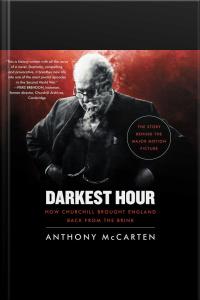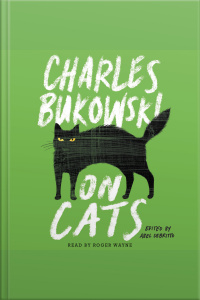Synopsis
A technical writing podcast about the latest trends and practices in the field of technical communication. Technical communication includes topics like technical writing (software help), information architecture, usability, API documentation, information design, web design, illustration, DITA, structured authoring, visual communication, and more. If youre a technical writer or interested in technical writing, this is the one of few podcasts in this niche. I also have a blog at http://idratherbewriting.com where the podcasts and other blog topics are published.
Episodes
-
Recording of my WTD Portland 2017 presentation on Building navigation for your doc site -- 5 best practices
08/06/2017 Duration: 21minHere's the recording of the presentation I gave at the Write the Docs 2017 Portland conference. The presentation explores best practices for doc navigation, including principles such as hierarchy, modularity, progressive disclosure, entry point, and wayfinding. The presentation is about 20 minutes long, and you can either watch a video or listen to audio. Other WTD presentation recordings are also available.
-
Recording of User-Centered Design Principles for Organizing Documentation
18/02/2017 Duration: 57minI recently presented to the STC Twin Cities chapter on User-centered Design Principles for Organizing Documentation. When organizing your documentation, such as arranging navigation titles, workflows, or other wayfinding features, you can apply universal design principles to make your content more user centered. Some of these principles include Modularity, Hierarchy, Five hat racks, and Progressive disclosure. These design principles, based on solid user research from design gurus, will help users better find and navigate your help content. You can view the recording and audio from the event here.
-
Recording: Modern Technical Writing, by Andrew Etter (STC Silicon Valley chapter)
24/01/2017 Duration: 01h02minAndrew Etter presented about his book, Modern Technical Writing, to the STC Silicon Valley chapter on January 24, 2017 in Santa Clara, California. In the presentation, Andrew talks about the strategies he implemented at Palantir to change to a new way of doing docs. This new way includes having a smaller team, using text editors, writing in plain text, processing pull requests instead of bugs, and more. He dives into lightweight markup syntax, static site generators, version control tools, and more, as well as challenges he has faced.
-
Recording: Writing tech docs like a hacker with Jekyll
18/01/2017 Duration: 59minI recently gave a presentation titled Writing tech docs like a hacker with Jekyll to the to the Southern Ontario STC chapter (on Jan 18, 2017). In the presentation, I introduce reasons why we started using Jekyll, how static site generators differ from content management systems, how to get started with Jekyll, and challenges involved in using Jekyll for technical documentation sites.
-
Recording of Open Authoring -- Collaboration Across Disciplines presentation, by Ralph Squillace
15/11/2016 Duration: 01h36minRalph Squillace, a senior content engineer for the Microsoft Azure Infrastructure team based in San Francisco, California, recently gave a presentation to the STC Silicon Valley chapter (on November 14, 2016) on Open Authoring -- Collaboration Across Disciplines. In the presentation, Ralph talks about Microsoft's approach to scaling their authoring and publishing efforts across the company by embracing Markdown, Github, open source tools, and other processes that allowed everyone in the company to write and contribute to Azure's documentation.
-
Saving Your Sanity Through Better Client Relations -- with Alisa Bonsignore
18/10/2016 Duration: 55minIn this presentation, Alisa Bonsignore, a technical communication consultant based in the San Francisco Bay area, talks about how she developed confidence and experience in consulting with clients about writing projects. In the beginning, Alisa started out by apologizing for projects in which she worked excessive numbers of hours for little pay, often trying to meet last-minute requests that required late nights and zapped her work-family balance. But project by project, she started to understand how to interact with clients in a more professional, self-respecting way. Ultimately this helped save her sanity and build a stable income through a reputable business.
-
How can technical writers thrive in agile environments? Event recording and details
20/09/2016 Duration: 01h05minLast Monday we had a record turnout at our STC Silicon Valley chapter (with about 40 attendees). The topic was a panel discussion on how to thrive in agile environments as a technical writer. With 5 panelists all from different companies, the perspectives and practices they shared varied a bit, which showed the adaptations different writers and companies have made with agile to make the process work for them. This post contains a full description and recording of the event.
-
Balancing the never-ending list of documentation to write with your natural interests and passions
02/09/2016 Duration: 11minSometimes I think that I've covered every possible topic on this blog that is possible to write about, and my muse becomes silent for a while. But then I remember the purpose of the blog -- to be a web-based log, or journal -- and I realize that the only reason I wouldn't have anything to write about is if I stopped having experiences, stopped reflecting on those experiences, and ultimately became a zombie. That zombie state is the death of any career.
-
Recording of Let's Tell a Story -- Scenario-Based Documentation, by Matt Ness (STC Silicon Valley Presentation)
02/09/2016 Duration: 55minMatt Ness, a technical writer at Splunk and a co-organizer for WTD San Francisco, recently gave a presentation to the STC Silicon Valley chapter called Let's Tell a Story: Scenario-Based Documentation. In this presentation, Matt talks about ways to integrate storytelling techniques into documentation, drawing upon his experience as a Dungeons and Dragons player and his player experience from other video game or fantasy worlds. To help users on their journeys and quests, you need a narrative to guide them and a manual to help them overcome obstacles. Video, slides, and audio from the presentation are included in this post.
-
The complexities of translation and the need for dynamic variables in the build process
15/08/2016 Duration: 14minTranslation is a complex undertaking that usually requires you to take advantage of dynamic variables and other parameters in your source format in order to generate out different languages. Although most people think of static site generators as containing static content only, it's actually only static output. During the build process, you can take advantage of these more dynamic characteristics to handle rules for outputting to different languages. In this post, I explain some of the details you have to account for (includes, links, images, re-used content, etc.) when managing a translation project using a static site generator such as Jekyll.
-
Presentation recording: Hunting for API developer documentation jobs in the San Francisco Bay area, by Andrew Davis
15/08/2016 Duration: 01h13minAndrew Davis recently gave a presentation on finding developer documentation jobs (mostly for API documentation) in the San Francisco Bay area. The title of the presentation is Hunting for Dev Doc Work around the Bay. You can listen to the presentation recording, check out the slides, or just download the audio.
-
The Story of Paligo: A new browser-based CCMS with all the features you'd ever want
01/08/2016 Duration: 08minUp until two years ago, Anders Svensson and his colleagues, based in Sweden, provided DITA and XML consulting. They eventually created their own XML-based component content management system (CCMS) called Paligo, which includes a full set of documentation features to handle single-sourcing, translation, and other documentation needs. Paligo solves the challenges that Svensson's customers had been facing for years with other CCMS systems.
-
Will the docs-as-code approach scale? Responding to comments on my Review of Modern Technical Writing
01/08/2016 Duration: 16minMy previous post reviewing Andrew Etter's ebook on Modern Technical Writing got an enormous response. Some readers said the docs-as-code approach works only for small shops and doesn't scale to large projects. They said content re-use and translation also become problematic. However, perhaps the real differentiator shouldn't be product size as much as product category. The docs-as-code approach (which is what I'm calling it) works particularly well for developer documentation, such as API documentation, which usually doesn't contain the same challenges that component content management systems (or CCMSs) were meant to solve.
-
Review of Andrew Etter's ebook on Modern Technical Writing
26/07/2016 Duration: 10minIn Modern Technical Writing: An Introduction to Software Documentation, which is an e-book you can read on your Kindle, Andrew Etter argues for a model of technical writing that involves lightweight markup languages (like AsciiDoc and Markdown), static site generators (such as Sphinx), distributed version control systems (like Git or Bitbucket), constantly iterating/updating doc content on your website based on analytics, and more. Etter's book resonated with me because it articulates so many of the principles I've felt about how documentation should be.
-
Applying Tim Ferriss' 4-hour work week rules to tech comm projects
20/07/2016 Duration: 09minPrinciples in Tim Ferriss' book The 4-Hour Work Week can be applied to tech comm projects. By focusing on the 20% of tasks that result in 80% of the results, limiting your focus to two mission critical tasks a day, empowering those around you to make decisions, and avoiding distractions from trivial tasks, meetings, and email, you can be much more productive in your work. More than crossing off a list of tasks, this approach will likely make your efforts matter.
-
Thoughts on Transforming Documentation Processes presentation at WTD: Evaluating the trend to treat documentation as code
15/07/2016 Duration: 09minAt the last Write the Docs conference, Riona Macnamara, a tech writer working on internal developer documentation at Google, moderated a panel about transforming your documentation process. The panel consisted of four writers from various companies -- Balsamiq, Rackspace, Microsoft, and Twitter. The panelists talked about how they increased collaboration and openness in their company's doc culture by transforming their authoring and publishing processes. Most of these transformations involved adopting a 'docs as code' type approach, which seems to be a growing trend.
-
Context switching and efficiency -- Kanban to the rescue?
13/07/2016 Duration: 07minIn Become More Productive and Motivated, Mattias Sander provides a well-written overview of Lean, which is a strategy for eliminating waste and focusing more on customer value. What interests me most with Sander's discussion about Lean is context-switching and the subsequent strategy of Kanban, which uses cards to regulate flow. While these principles were developed in the context of Japanese car manufacturers (namely Toyota), they apply equally to the technical writer's world.
-
Why Programming Sucks and the fallacy of documentation in the context of code chaos
12/07/2016 Duration: 07minYesterday on Write the Docs, someone shared an article titled Programming Sucks, by Peter Welch. More than just a developer monologue, this article seems to hit on universal truths about programming, so much so that the article has been translated into 10 languages and even has a professionally-read audio version on iTunes (which I bought for $2).
-
Thoughts on Documentation Avoidance for Programmers
09/07/2016 Duration: 06minThis past week on the Write the Docs forum, there was a bit of discussion around a recent presentation titled Documentation Avoidance for Programmers. In the presentation, Peter Hilton lays out a series of tips on how programmers might get out of writing documentation.
-
Recording of 'Two great teams that work great together: Bridging the gap between documentation and support,' by Neal Kaplan at Write the Docs
22/05/2016We recently hosted a Write the Docs meetup in Redwood City with a couple of excellent presenters. Below is the recording of Neal Kaplan's presentation. I also explain a bit about my new lapel mic and recording process.

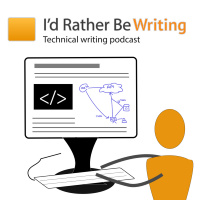
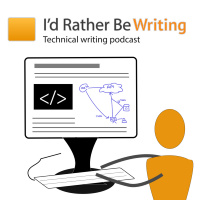
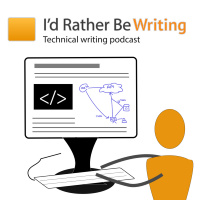
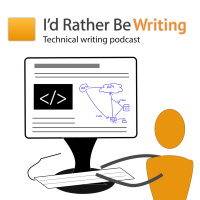
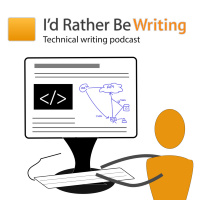
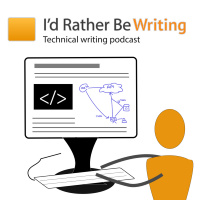
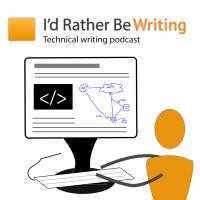
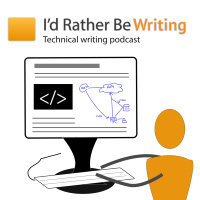
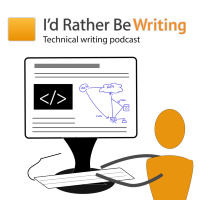













![Bargaining With The Devil: When To Negotiate, When To Fight [abridged]](http://media3.ubook.com/catalog/book-cover-image/478380/200x300/1812131510-bargaining-with-the-devil-when-to-negotiate-when-to-fight-abridged.jpg)

